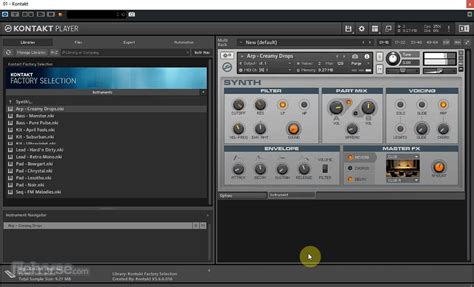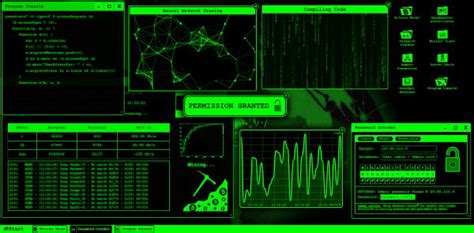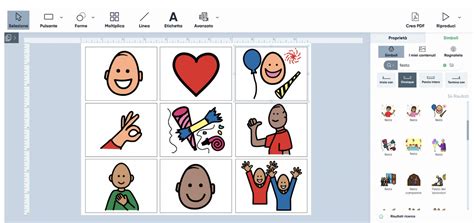Uninstall dropbox ubuntu
Author: s | 2025-04-24

Uninstall Dropbox Ubuntu. In this tutorial, we will learn to uninstall Dropbox Ubuntu easily using terminal. After that, you will be confident to uninstall D How to Uninstall Dropbox from Ubuntu/Linux. Learn how to uninstall or remove Dropbox from Ubuntu easily. Type one command your Dropbox is gone. Watch this Video to learn:

How To Uninstall Dropbox In 2025 - Uninstall Dropbox Ubuntu
Some general advice first: For the inexperienced user, is it best/easier to remove the package from within the USC and then re-install or is there a more elegant way of obtaining the update, for example using sudo apt-get update dropbox ?For the inexperienced user, it is absolutely best and easier, by a long stretch, to not install any packages manually. Installing a .deb package manually means that you will not receive any more automatic updates to that package, since it was not installed via any repositories known to your system. This means you will have to keep updating that package yourself, e.g., regularly going to that Downloads page and downloading the newest version. Additionally, the packages available there have not undergone any quality checks by Ubuntu, and so compatibility with your system is not necessarily guaranteed. Worst case, you may end up with some weird unresolvable dependencies.So yes, there is a more elegant way of obtaining the update: sit back and wait.The newest version of the Dropbox client will certainly be added to the Ubuntu repositories soon enough. If the Dropbox client available in the repositories did not work any longer with the current Dropbox servers, this would be a problem that would not affect only you, but thousands of other Ubuntu users as well. And so, it would be resolved quickly.To sum up, don't try to fix a working system.Concerning installation of the Dropbox client:After having done a bit of research, it seems that there are at least three possibilities how to install (i.e., how you could have previously installed) the Dropbox client. Let's go through them:1. Installing the package nautilus-dropbox from multiverseThe name of the package may be slightly confusing. It is the one package in the official repositories that contains the actual, proprietary Dropbox client itself. That
uninstall dropbox ubuntu - carrentalhatyai.com
Is, when you install this package, it will automatically download the proprietary Dropbox client from the Dropbox website and install it (to /usr/bin/dropbox). Yes, it does also contain an extension to integrate the Dropbox client with Nautilus, Ubuntu's standard file manager (/usr/lib/nautilus/extensions-3.0/libnautilus-dropbox.so), whence the package's name.Since the package contains non-free, proprietary software, it is contained in the multiverse repository.For all the reasons I mentioned under "Some general advice", this is the one method I absolutely recommend to install the Dropbox client, particularly so for Ubuntu novices. It will be managed by the package manager, it's in the official repos, you'll be fine. The Ubuntu Team will take care of that package working for you.To install this package, all you need to do is:sudo apt-get install nautilus-dropboxTo remove it again:sudo apt-get remove nautilus-dropbox2. Installing the package dropbox from Dropbox's 3rd party repositoryDropbox manages its own repository that you can add to your list of package repositories, and install the Dropbox client from. See How do I add or remove Dropbox from my Linux repository? on the Dropbox's website help pages.Once you've added that repository as explained in the instructions under that link, you will be able to install the proprietary Dropbox client directly from the Dropbox servers using the package management system.Basically, to install Dropbox like that, first enable the repository withsudo apt-key adv --keyserver pgp.mit.edu --recv-keys 5044912Esudo add-apt-repository "deb $(lsb_release -sc) main"(This is slightly more elegant than what they tell you on the help pages, but really boils down to the same), and then install the package withsudo apt-get updatesudo apt-get install dropboxThis is the second best method. The package is still managed by the package management system, but the repository is not managed by Canonical. So while you'll receive updates via the package management system for that package, you'llHow To Install Or Uninstall Dropbox In Ubuntu?
How to Install and Uninstall qmmp Package on Ubuntu 24.04 LTS (Noble Numbat) Last updated: March 13,2025 1. Install "qmmp" package Here is a brief guide to show you how to install qmmp on Ubuntu 24.04 LTS (Noble Numbat) $ sudo apt update Copied $ sudo apt install qmmp Copied 2. Uninstall "qmmp" package Please follow the guidance below to uninstall qmmp on Ubuntu 24.04 LTS (Noble Numbat): $ sudo apt remove qmmp Copied $ sudo apt autoclean && sudo apt autoremove Copied 3. Information about the qmmp package on Ubuntu 24.04 LTS (Noble Numbat) Package: qmmpArchitecture: amd64Version: 1.6.2-1build1Priority: optionalSection: universe/soundOrigin: UbuntuMaintainer: Ubuntu Developers Original-Maintainer: Matteo Cypriani Bugs: 11661Depends: libarchive13 (>= 3.2.1), libasound2 (>= 1.0.27), libavcodec60 (>= 7:6.0), libavformat60 (>= 7:6.0), libavutil58 (>= 7:6.0), libbs2b0 (>= 3.1.0+dfsg), libc6 (>= 2.34), libcddb2 (>= 1.3.2), libcdio-cdda2 (>= 10.2+2.0.0), libcdio19 (>= 2.1.0), libcurl3-gnutls (>= 7.16.2), libenca0 (>= 1.9), libfaad2 (>= 2.7), libflac12 (>= 1.3.0), libgcc-s1 (>= 3.3.1), libgme0 (>= 0.5.5), libjack-jackd2-0 (>= 1.9.10+20150825) | libjack-0.125, libmad0 (>= 0.15.1b-3), libmms0 (>= 0.4), libmpcdec6 (>= 1:0.1~r435), libmpg123-0 (>= 1.28.0), libogg0 (>= 1.0rc3), libopusfile0 (>= 0.5), libpipewire-0.3-0 (>= 0.3.6), libpulse0 (>= 0.99.1), libqt5core5a (>= 5.15.1), libqt5dbus5 (>= 5.14.1), libqt5gui5 (>= 5.14.1) | libqt5gui5-gles (>= 5.14.1), libqt5multimedia5 (>= 5.6.0~beta), libqt5network5 (>= 5.14.1), libqt5sql5 (>= 5.0.2), libqt5widgets5 (>= 5.14.1), libqt5x11extras5 (>= 5.6.0), libshout3 (>= 2.4.3), libsidplayfp6 (>= 2.5.0), libsndfile1 (>= 1.0.20), libsoxr0 (>= 0.1.0), libstdc++6 (>= 13.1), libtag1v5 (>= 1.12~beta~1), libvorbis0a (>= 1.1.2), libvorbisenc2 (>= 1.1.2), libvorbisfile3 (>= 1.1.2), libwavpack1 (>= 4.40.0), libwildmidi2 (>= 0.2.3), libx11-6, libxmp4 (>= 4.4.0)Suggests: qmmp-plugin-projectm, ffmpeg, mplayer, unzip, udisks2Breaks: libqmmp-misc (Replaces: libqmmp-misc (Filename: pool/universe/q/qmmp/qmmp_1.6.2-1build1_amd64.debSize: 2439188MD5sum: b30c34e81744410c8ecbe14ea7208f16SHA1: 67ef719ec73beb88b6c65d4071567866e899d5b1SHA256: 4ee8968d19a2688c6384f509828b811e83315c0fbd89cfa246719e72afab811aSHA512: 983b94f1dcc69a64a846113d5f8ed4056dcc2053884fa20db4cbe7fd987b86e7df959598fc3f9b043de570dfbf36c1ce63db67031a291bab8b65de84c9c2c6d3Homepage: feature-rich audio player with support of many formatsDescription-md5: 555e7bdd0f6894cb8057fac96ee84926 4. References on Ubuntu 24.04 LTS (Noble Numbat) 5. The same packages on other Linux Distributions. Uninstall Dropbox Ubuntu. In this tutorial, we will learn to uninstall Dropbox Ubuntu easily using terminal. After that, you will be confident to uninstall DHow to Install or Uninstall Dropbox in Ubuntu - Itechguides
How to Install and Uninstall smart-notifier Package on Ubuntu 20.04 LTS (Focal Fossa) Last updated: March 13,2025 1. Install "smart-notifier" package Please follow the guidelines below to install smart-notifier on Ubuntu 20.04 LTS (Focal Fossa) $ sudo apt update Copied $ sudo apt install smart-notifier Copied 2. Uninstall "smart-notifier" package This tutorial shows how to uninstall smart-notifier on Ubuntu 20.04 LTS (Focal Fossa): $ sudo apt remove smart-notifier Copied $ sudo apt autoclean && sudo apt autoremove Copied 3. Information about the smart-notifier package on Ubuntu 20.04 LTS (Focal Fossa) Package: smart-notifierArchitecture: allVersion: 0.28-6~ubuntu20.04.1Priority: optionalSection: universe/utilsOrigin: UbuntuMaintainer: Ubuntu Developers Original-Maintainer: Chow Loong Jin Bugs: 60Depends: python3:any, dbus, python3-dbus, smartmontools (>= 5.33+5.34cvs20050802-2), gir1.2-gtk-3.0Filename: pool/universe/s/smart-notifier/smart-notifier_0.28-6~ubuntu20.04.1_all.debSize: 10044MD5sum: e6a5da6b844d1e412138511332386600SHA1: c26e1fe8ec20ff4e7c93da19488b8b5d527a77aeSHA256: 8a23511abeabd6fd3fea1120be5b05600e70d97d76e1270dd66dbddd74d51fa6SHA512: a220c11629d84d9736acbbfbe7c913b3a583d4668cf2c521fdd43fcfeade60fa32cbc0901c596f85b5557ec85c841867db231b11c98a89c43b06298433e9a4dfDescription: graphical hard disk health status notifierDescription-md5: da927826fe9809020d2444d3a64c0615Package: smart-notifierArchitecture: allVersion: 0.28-5build1Priority: optionalSection: universe/utilsOrigin: UbuntuMaintainer: Ubuntu Developers Original-Maintainer: Chow Loong Jin Bugs: 31Depends: dbus, python-dbus, smartmontools (>= 5.33+5.34cvs20050802-2), gir1.2-gtk-3.0Filename: pool/universe/s/smart-notifier/smart-notifier_0.28-5build1_all.debSize: 6812MD5sum: 4e51b1265f871836661b99bcdc3e598eSHA1: 6dadcd664b2fe8cce2413290c854f5e0bbda3db8SHA256: e1370b91ca6f7c7ef52c6d9564255f3956d69a868038e9ccb461e2b3a6d5d8ddDescription: graphical hard disk health status notifierDescription-md5: da927826fe9809020d2444d3a64c0615 4. References on Ubuntu 20.04 LTS (Focal Fossa) 5. The same packages on other Linux DistributionsHow to Uninstall Dropbox Ubuntu (Without Deleting
Ubuntu. However, there are a number of reasons why Firefox might not work properly on Ubuntu. This guide has provided you with some tips on how to troubleshoot and fix common problems with Firefox on Ubuntu. If you are still having problems, you can always contact Mozilla support for help.3. Solutions to Firefox not working on UbuntuIf Firefox is not working on your Ubuntu system, there are a few things you can try to fix the problem.Reinstall Firefox. The first thing you should try is to reinstall Firefox. This will often fix any problems that are caused by corrupted files or settings. To reinstall Firefox, follow these steps: 1. Open the Ubuntu Software Center. 2. Search for “Firefox”. 3. Click the Install button. 4. Follow the on-screen instructions to complete the installation.Disable or uninstall conflicting programs or extensions. If Firefox is not working properly, it could be because it is conflicting with another program or extension. To troubleshoot this, try disabling or uninstalling any programs or extensions that you recently installed. You can also try disabling or uninstalling any programs or extensions that are known to conflict with Firefox. To disable or uninstall a program, follow these steps: 1. Open the Ubuntu Software Center. 2. Search for the program that you want to disable or uninstall. 3. Click the Details button. 4. Click the Disable or Uninstall button. To disable or uninstall an extension, follow these steps: 1. Open Firefox. 2. Click the Menu button (three horizontal lines) in the top right corner of the window. 3. Select Add-ons. 4. Click the Extensions tab. 5. Select the extension that you want to disable or uninstall. 6. Click the Disable or Uninstall button.Check your system settings. If Firefox is not working properly, it could be because your system settings are not configured correctly. To check your system settings, follow these steps: 1. Open the System Settings application. 2. Click the Details tab. 3. Click the Network section. 4. Make sure that the Network connection is enabled and that the IP address and DNS server settings are correct.Update your graphics drivers. If[ubuntu] how do I uninstall dropbox [Archive] - Ubuntu Forums
How to Install and Uninstall gnumed-client Package on Ubuntu 20.04 LTS (Focal Fossa) Last updated: March 14,2025 1. Install "gnumed-client" package In this section, we are going to explain the necessary steps to install gnumed-client on Ubuntu 20.04 LTS (Focal Fossa) $ sudo apt update Copied $ sudo apt install gnumed-client Copied 2. Uninstall "gnumed-client" package Please follow the instructions below to uninstall gnumed-client on Ubuntu 20.04 LTS (Focal Fossa): $ sudo apt remove gnumed-client Copied $ sudo apt autoclean && sudo apt autoremove Copied 3. Information about the gnumed-client package on Ubuntu 20.04 LTS (Focal Fossa) Package: gnumed-clientArchitecture: allVersion: 1.8.0+dfsg-1Priority: optionalSection: universe/miscOrigin: UbuntuMaintainer: Ubuntu Developers Original-Maintainer: Debian Med Packaging Team Bugs: 9775Depends: python3:any, python3-wxgtk4.0, gnumed-common (= 1.8.0+dfsg-1), file, python3-enchant, hunspell | aspell | ispell | myspell-dictionary | hspell, python3-gnuplot, texlive-latex-base, imagemagick, python3-pip, python3-httplib2, python3-hl7, python3-pyudev, python3-psutil, python3-lxmlRecommends: gnumed-doc (= 1.8.0+dfsg-1), audiofile-tools, dcmtk, ginkgocadx | aeskulap | amide | dicomscope | imagej | xmedcon, libimage-exiftool-perl, xsane, extract, ntp | ntpdate, iceweasel | www-browser, libreoffice-writer | openoffice.org-writer, wgerman-medical, xdg-utils, gtklp, texlive-latex-recommended, texlive-latex-extra, cups-pdf, pdftk, python3-vobject, python3-pyqrcode, python3-unidecode, python3-docutils, p7zip-full, gpg, poppler-utils, qpdf, lacheck, chktexSuggests: korganizer, libchipcard-tools, incron, gnumed-server, konsolekalendar, pgadmin3, gimp | kolourpaint4, shutdown-at-night, edfbrowser, freediams, autokey-qt | autokey-gtk, wakeonlan | etherwake | gwakeonlan, nvram-wakeup, entangle, python3-uno, qrisk2Filename: pool/universe/g/gnumed-client/gnumed-client_1.8.0+dfsg-1_all.debSize: 1511116MD5sum: cea920752678ced5b043f4d2c13e123fSHA1: 8057ceb78fa1759361369e62a54e3e207a2c6d8bSHA256: a38b982d1db882527e55211df6e05788d89b2a99dbb0575eef9230aaaaad55c6Homepage: medical practice management - ClientDescription-md5: 6cc82a042190bb497f847ec008443b9e 4. References on Ubuntu 20.04 LTS (Focal Fossa) 5. The same packages on other Linux Distributions. Uninstall Dropbox Ubuntu. In this tutorial, we will learn to uninstall Dropbox Ubuntu easily using terminal. After that, you will be confident to uninstall DComments
Some general advice first: For the inexperienced user, is it best/easier to remove the package from within the USC and then re-install or is there a more elegant way of obtaining the update, for example using sudo apt-get update dropbox ?For the inexperienced user, it is absolutely best and easier, by a long stretch, to not install any packages manually. Installing a .deb package manually means that you will not receive any more automatic updates to that package, since it was not installed via any repositories known to your system. This means you will have to keep updating that package yourself, e.g., regularly going to that Downloads page and downloading the newest version. Additionally, the packages available there have not undergone any quality checks by Ubuntu, and so compatibility with your system is not necessarily guaranteed. Worst case, you may end up with some weird unresolvable dependencies.So yes, there is a more elegant way of obtaining the update: sit back and wait.The newest version of the Dropbox client will certainly be added to the Ubuntu repositories soon enough. If the Dropbox client available in the repositories did not work any longer with the current Dropbox servers, this would be a problem that would not affect only you, but thousands of other Ubuntu users as well. And so, it would be resolved quickly.To sum up, don't try to fix a working system.Concerning installation of the Dropbox client:After having done a bit of research, it seems that there are at least three possibilities how to install (i.e., how you could have previously installed) the Dropbox client. Let's go through them:1. Installing the package nautilus-dropbox from multiverseThe name of the package may be slightly confusing. It is the one package in the official repositories that contains the actual, proprietary Dropbox client itself. That
2025-04-04Is, when you install this package, it will automatically download the proprietary Dropbox client from the Dropbox website and install it (to /usr/bin/dropbox). Yes, it does also contain an extension to integrate the Dropbox client with Nautilus, Ubuntu's standard file manager (/usr/lib/nautilus/extensions-3.0/libnautilus-dropbox.so), whence the package's name.Since the package contains non-free, proprietary software, it is contained in the multiverse repository.For all the reasons I mentioned under "Some general advice", this is the one method I absolutely recommend to install the Dropbox client, particularly so for Ubuntu novices. It will be managed by the package manager, it's in the official repos, you'll be fine. The Ubuntu Team will take care of that package working for you.To install this package, all you need to do is:sudo apt-get install nautilus-dropboxTo remove it again:sudo apt-get remove nautilus-dropbox2. Installing the package dropbox from Dropbox's 3rd party repositoryDropbox manages its own repository that you can add to your list of package repositories, and install the Dropbox client from. See How do I add or remove Dropbox from my Linux repository? on the Dropbox's website help pages.Once you've added that repository as explained in the instructions under that link, you will be able to install the proprietary Dropbox client directly from the Dropbox servers using the package management system.Basically, to install Dropbox like that, first enable the repository withsudo apt-key adv --keyserver pgp.mit.edu --recv-keys 5044912Esudo add-apt-repository "deb $(lsb_release -sc) main"(This is slightly more elegant than what they tell you on the help pages, but really boils down to the same), and then install the package withsudo apt-get updatesudo apt-get install dropboxThis is the second best method. The package is still managed by the package management system, but the repository is not managed by Canonical. So while you'll receive updates via the package management system for that package, you'll
2025-04-10How to Install and Uninstall smart-notifier Package on Ubuntu 20.04 LTS (Focal Fossa) Last updated: March 13,2025 1. Install "smart-notifier" package Please follow the guidelines below to install smart-notifier on Ubuntu 20.04 LTS (Focal Fossa) $ sudo apt update Copied $ sudo apt install smart-notifier Copied 2. Uninstall "smart-notifier" package This tutorial shows how to uninstall smart-notifier on Ubuntu 20.04 LTS (Focal Fossa): $ sudo apt remove smart-notifier Copied $ sudo apt autoclean && sudo apt autoremove Copied 3. Information about the smart-notifier package on Ubuntu 20.04 LTS (Focal Fossa) Package: smart-notifierArchitecture: allVersion: 0.28-6~ubuntu20.04.1Priority: optionalSection: universe/utilsOrigin: UbuntuMaintainer: Ubuntu Developers Original-Maintainer: Chow Loong Jin Bugs: 60Depends: python3:any, dbus, python3-dbus, smartmontools (>= 5.33+5.34cvs20050802-2), gir1.2-gtk-3.0Filename: pool/universe/s/smart-notifier/smart-notifier_0.28-6~ubuntu20.04.1_all.debSize: 10044MD5sum: e6a5da6b844d1e412138511332386600SHA1: c26e1fe8ec20ff4e7c93da19488b8b5d527a77aeSHA256: 8a23511abeabd6fd3fea1120be5b05600e70d97d76e1270dd66dbddd74d51fa6SHA512: a220c11629d84d9736acbbfbe7c913b3a583d4668cf2c521fdd43fcfeade60fa32cbc0901c596f85b5557ec85c841867db231b11c98a89c43b06298433e9a4dfDescription: graphical hard disk health status notifierDescription-md5: da927826fe9809020d2444d3a64c0615Package: smart-notifierArchitecture: allVersion: 0.28-5build1Priority: optionalSection: universe/utilsOrigin: UbuntuMaintainer: Ubuntu Developers Original-Maintainer: Chow Loong Jin Bugs: 31Depends: dbus, python-dbus, smartmontools (>= 5.33+5.34cvs20050802-2), gir1.2-gtk-3.0Filename: pool/universe/s/smart-notifier/smart-notifier_0.28-5build1_all.debSize: 6812MD5sum: 4e51b1265f871836661b99bcdc3e598eSHA1: 6dadcd664b2fe8cce2413290c854f5e0bbda3db8SHA256: e1370b91ca6f7c7ef52c6d9564255f3956d69a868038e9ccb461e2b3a6d5d8ddDescription: graphical hard disk health status notifierDescription-md5: da927826fe9809020d2444d3a64c0615 4. References on Ubuntu 20.04 LTS (Focal Fossa) 5. The same packages on other Linux Distributions
2025-04-10